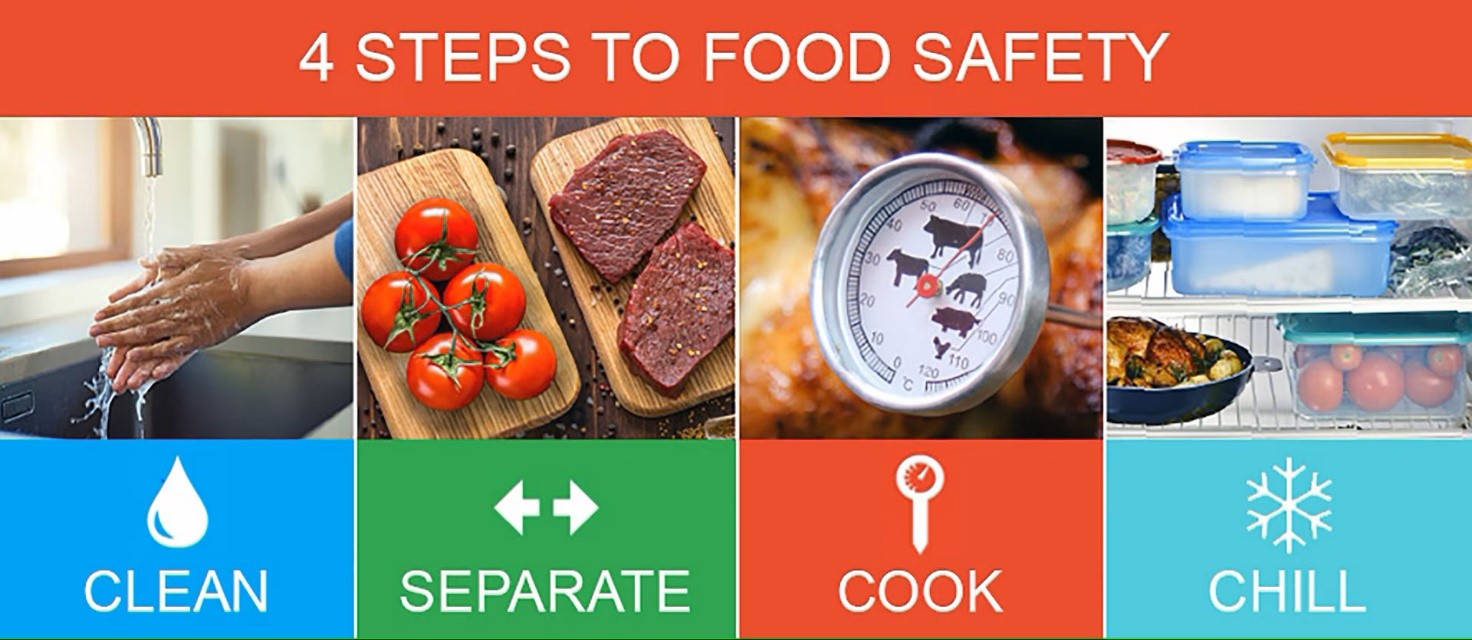
Every time we sit down to eat, we trust that our food is safe. That trust is sometimes broken, because contaminated food can cause very serious illnesses. Unsafe food is a global concern, causing over 600 million cases of illness and 420,000 deaths every year, mostly in low- and middle-income countries. Children under five years are the most affected, and they face serious health risks from contaminated food.
Food contamination: In the food chain, from the farm to your plate, food can be contaminated by pathogens, such as bacteria, viruses, parasites, or chemicals, during any one of its many stages, including growing, processing, transporting, or cooking food. For example, poor hygiene in handling food or the use of polluted water may lead to serious problems. In 2020, an outbreak of COVID-19 cases in Beijing was traced to imported frozen seafood.
The risks do not end there. Harmful substances, like heavy metals, can go into the food through polluted soil and affect the crops and human health. Another rising danger is microplastics (tiny plastic particles) that contaminate air, water, and even honey and seafood. These pollutants have long-term effects, from damaging organs to causing developmental problems.
But most food safety challenges are much more significant in many other countries, especially those that have fewer resources. For example, informal markets can hardly be regulated for safe food handling; storage at very high temperatures further complicates the situation. It still happens in developed nations because of accidents with bigger products at some point in processing or storage.
Still, there are solutions to such challenges. Organizations like the World Health Organization (WHO) and the Food and Agriculture Organization (FAO) work on improving food safety globally. One Health actually links human, animal, and environmental health to build stronger systems in that respect. Programs like World Food Safety Day sensitize the world on this subject, while international standards like those set by the Codex Alimentarius Commission help countries ensure safer food. We also have a personal role to play in food safety. Simple steps at home can prevent contamination. Keeping hands, utensils, and surfaces clean before and after handling foods reduces the risk of cross-contamination. Cooking foods to the appropriate temperature, especially meat, poultry, and seafood, ensures that harmful bacteria are killed.
Storing leftovers in the fridge and using them within a safe time frame prevents spoilage, while keeping raw foods, such as meat, away from ready-to-eat foods helps avoid cross-contamination. Keeping the right temperature is also important: refrigerators should be set at below 5°C, and frozen items at −18°C or lower.
While global efforts work on bigger issues of food safety, each of us can also make a difference at home. Food safety is more than just trying to avoid illness; it is ensuring that everybody will have access to healthy, nutritious meals. Staying informed and taking simple precautions are ways we can help ourselves and others avoid the invisible threats that may sneak into our food.